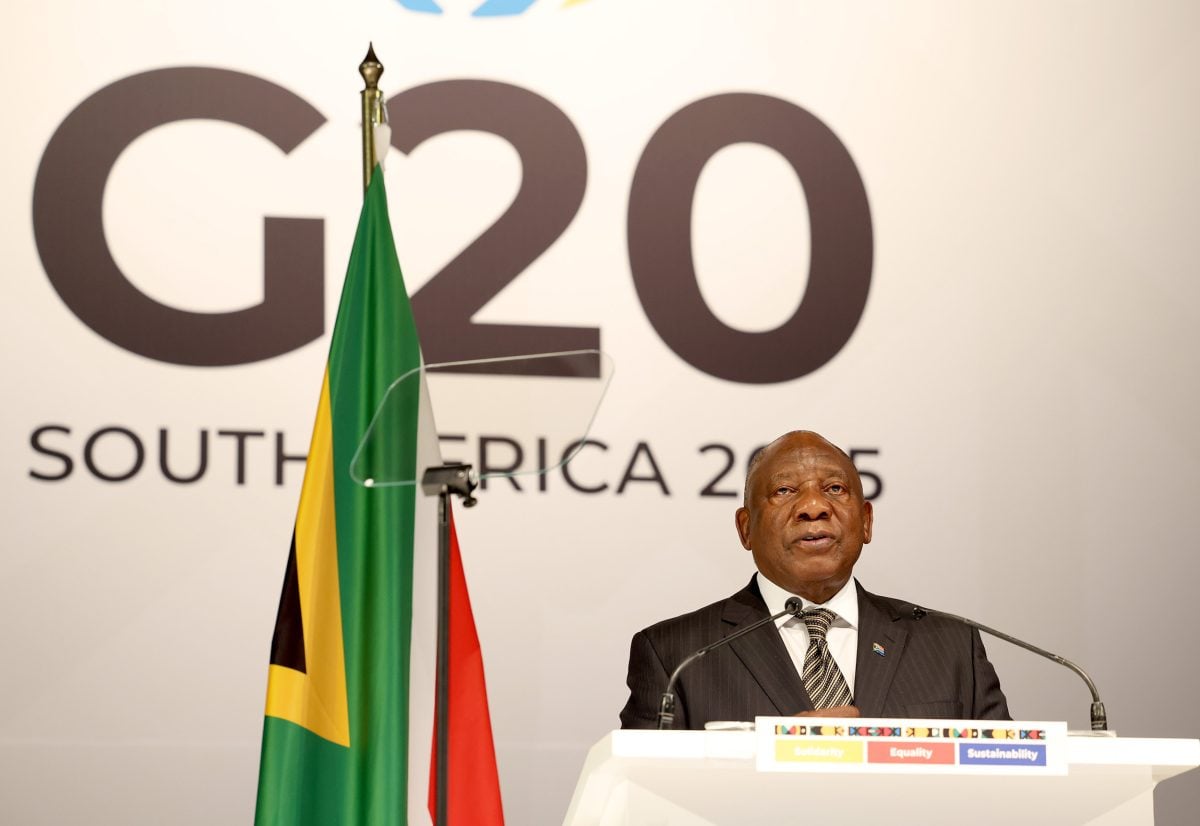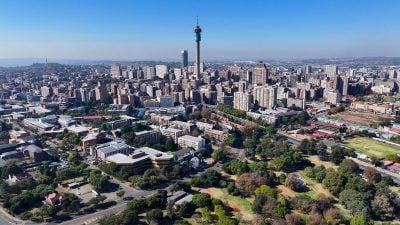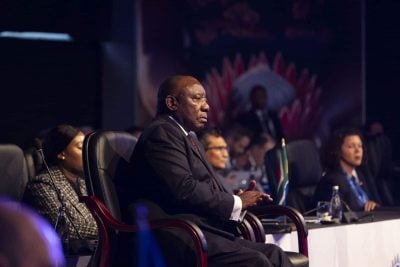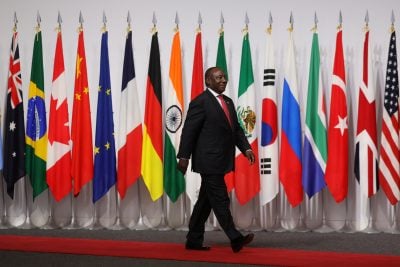With the G20 heads of state summit drawing closer, Africa is racing to rally global support for its agenda. South Africa’s presidency is seeking to drive consensus and action on priority issues like climate finance, debt relief, global financial reform, and inequality. But why should leaders outside of Africa take on these challenges with the same gusto as Africa’s leaders? Because it is in their self-interest to do so. Success or failure in these matters will have far-reaching implications not only for Africa’s future, but for the world’s collective stability and prosperity.
The 21st century is unmistakably the African century. The continent is undergoing a major demographic transformation that has magnified its role in the global order. Approximately 1.5bn people or 18% of the global population currently live in Africa. However, by 2050, the UN projects that 2.5bn people – or 25% of the world’s population at the time – will be living on the continent. Its share of the world’s population is set to reach close to 40% percent by 2100.
Indeed, five of the eight countries expected to drive more than half of global population growth over the next three decades are African. These include the Democratic Republic of Congo, Tanzania, Ethiopia, Nigeria, and Egypt. The working-age population in these African countries, and in many others across the continent, will grow faster than any other age group. In contrast, many other regions face stagnating or declining populations, underscoring Africa’s centrality to future migration flows, labour markets, supply chains, innovation, and global demand.
The growing link between climate and debt
Africa is urging the G20 to confront climate and debt through coordinated global action. Experts argue that the two issues are inextricably linked. As fiscal space narrows under the weight of mounting debt, African nations are struggling to mobilise the financing required to deal with the effects of climate disasters and build resilience against future shocks.
Over the past 15 years, Africa’s external debt has more than tripled, climbing from roughly $200bn in 2008 to over $700bn in 2023. This massive increase in debt levels means governments now spend more on debt service than they do on key development priorities, including climate finance.
“This fiscal squeeze collides with Africa’s colossal climate investment needs. Sub-Saharan Africa will require more than US$1.4 trillion this decade – about US$143 billion annually – to meet adaptation and resilience goals. Yet actual climate finance flows from 2021 to 2023 average just US$35 billion per year. Worse still, more than half of this comes in the form of new debt rather than grants, further fueling unsustainable borrowing,” write Alexander Dryden, Ulrich Volz and Sarah Ribbert from Debt Relief for Green and Inclusive Recovery.
“In effect, countries are borrowing to protect themselves against the very climate shocks that worsen their debt burdens. Meanwhile, African governments are projected to spend US$865 billion on debt servicing over the same decade – nearly as much as they need for climate resilience,” they add.
Debt reform, they argue, will help increase climate finance flows to Africa. “The political momentum on debt reform is undeniable – but without systemic change, Africa risks being locked into a cycle of debt, vulnerability, and underdevelopment. The upcoming G20 Summit is a chance to turn recognition into action.”
Richer countries must join fight against inequality
Inequality is central to South Africa’s G20 agenda, alongside solidarity and sustainability. “Given the importance of equality to sustaining global growth, to social and political stability and to the legitimacy of international economic governance, it is good that at South Africa’s instance this will be the first time the G20 will focus on this matter,” said President Cyril Ramaphosa.
He called for concerted global efforts to address this issue, arguing that this is not an issue for poorer countries to tackle alone, but a global crisis that must be confronted head-on. “Inequality is bad for everyone. It makes the world less stable, fuels conflict and undermines democracy. It stifles inclusive economic growth and prosperity,” he noted.
“We chose to focus on equality because it is essential to a more stable, prosperous and sustainable world. If the G20 is going to live up to its mission to tackle pressing global economic and financial issues, then it needs to significantly and urgently reduce inequality,” he added.
Inequality doesn’t respect borders. In poorer nations, it often fuels food insecurity, conflict, and economic displacement. In wealthier regions, its consequences surface as irregular migration, political instability, and social tension.
According to the Africa Centre, more than 1.37 million African nationals have been intercepted attempting to cross into Europe irregularly over the past 15 years. Many have perished during the treacherous journey across the Mediterranean. Those who survive and make it into Europe often face a new set of challenges: the threat of deportation, limited legal protections, and precarious employment situations in Europe’s shadow economy.
A more inclusive and stable Africa—marked by economic opportunity, good governance, and regional cooperation—can significantly reduce irregular migration by addressing its root causes. Experts emphasize that migration is often driven by desperation, not aspiration, and that systemic reforms are more effective than border enforcement alone.
A keenly felt absence
As South Africa pushes forward with its agenda, it can count on strong support from several key G20 members. These include members of the BRICS grouping, the European Union, which endorses climate action and inequality reduction, and the African Union. However, with the notable absence of the US from the G20, some experts worry that South Africa could face headwinds in its efforts to drive its agenda in the forum.
“As the world’s largest economy, the US has traditionally played a pivotal role in coordinating global economic policies and addressing pressing international challenges. Without active US participation, the G20’s ability to lead global economic cooperation may be severely compromised,” says Bianca Botes, Citadel Advisory partner and global director.
She argues that the US’s decision to withdraw from this year’s summit could pave the way for other world powers to play a more decisive role. “This vacuum in leadership, however, creates an opportunity for other major powers to assert their influence. Russia and China, whose foreign ministers will be attending the meetings, stand to benefit from the US boycott.”
Lack of progress on key issues, she warns, could lead an already fractured world to fragment even further. “As the world grapples with pressing issues like climate change, economic inequality, and technological disruption, the need for effective international cooperation has never been greater. The outcome of this G20 summit may well determine whether the world rises to meet these challenges together or fragments into competing spheres of influence.”
 Sign in with Google
Sign in with Google 



